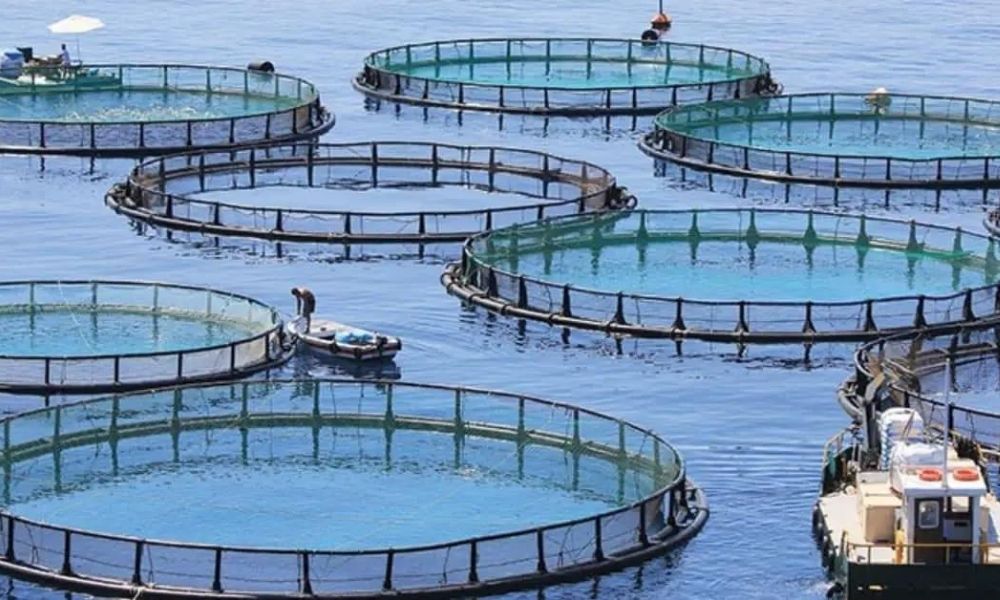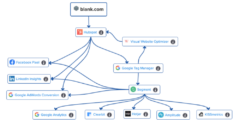Fish farming, also known as aquaculture, is the practice of raising fish in controlled environments for commercial purposes. This method of fish production has been gaining popularity in recent years due to the increasing demand for seafood and the decline of wild fish populations. While there are some concerns about the environmental impact of fish farming, it also offers numerous benefits that make it a sustainable solution for the future. In this article, we will explore the various benefits of fish farming and how it can contribute to a more sustainable food system.
Contents
1. Meeting the Growing Demand for Seafood
The global demand for seafood has been steadily increasing over the years, driven by factors such as population growth, rising incomes, and changing dietary preferences. According to the Food and Agriculture Organization (FAO), the world’s per capita fish consumption has more than doubled since the 1960s, and it is expected to continue to rise in the coming years.
With wild fish stocks already under pressure from overfishing, fish farming provides a viable solution to meet the growing demand for seafood. By raising fish in controlled environments, fish farmers can produce a consistent and reliable supply of fish, reducing the pressure on wild fish populations. This also helps to ensure that consumers have access to a variety of seafood options throughout the year, regardless of seasonal or environmental factors.
Read:How could quantum computing benefit the financial services industry?2. Reducing Pressure on Wild Fish Populations
As mentioned earlier, overfishing is a major threat to the world’s fish populations. According to the FAO, around 34% of fish stocks are currently being fished at unsustainable levels, and another 60% are being fished to their maximum capacity. This has led to the decline of many fish species, with some even facing the risk of extinction.
Fish farming can help to alleviate this pressure on wild fish populations by providing an alternative source of seafood. By reducing the demand for wild-caught fish, fish farming can help to protect vulnerable species and allow their populations to recover. This is especially important for species that are slow-growing and have a low reproductive rate, as they are more susceptible to overfishing.
3. Improving Food Security
Food security, defined as the availability of food and the ability to access it, is a major global concern. With the world’s population projected to reach 9.7 billion by 2050, there is a growing need for sustainable food production methods to ensure that everyone has access to safe and nutritious food.
Fish farming can play a crucial role in improving food security, especially in developing countries where fish is a vital source of protein and essential nutrients. By providing a consistent and affordable supply of fish, fish farming can help to reduce malnutrition and improve the overall health of communities. It also creates employment opportunities and income for small-scale fish farmers, contributing to poverty reduction and economic development.
Read:What is evidence of excellence in job application example?4. Minimizing Environmental Impact
One of the main concerns about fish farming is its potential impact on the environment. However, when done correctly, fish farming can actually have a lower environmental impact compared to other forms of animal agriculture.
For instance, fish farming requires less land and water compared to traditional livestock farming, making it a more efficient use of resources. It also produces less greenhouse gas emissions and waste, as fish are cold-blooded and do not require feed to maintain their body temperature. In addition, fish farming can also help to reduce the pressure on wild fish populations, as mentioned earlier, which is crucial for maintaining a healthy and balanced marine ecosystem.
5. Promoting Sustainable Practices
In recent years, there has been a growing focus on sustainability in the food industry, and fish farming is no exception. Many fish farms are now implementing sustainable practices to reduce their environmental impact and ensure the long-term viability of their operations.
For example, some fish farms are using recirculating aquaculture systems (RAS) that recycle and treat water, reducing the need for large amounts of water and minimizing the risk of pollution. Others are using sustainable feed sources, such as plant-based or insect-based feeds, to reduce the reliance on wild-caught fish for feed. These practices not only benefit the environment but also contribute to the production of healthier and more sustainable seafood.
Read:What does forwarded to a third party agent mean?6. Diversifying the Seafood Market
Fish farming also offers the opportunity to diversify the seafood market by producing a wider range of fish species. In traditional fishing, only a limited number of fish species are commercially viable, which can lead to overfishing and the depletion of certain species. With fish farming, a wider variety of fish species can be raised, including those that are not commonly found in the wild.
This not only provides consumers with more options but also helps to reduce the pressure on popular fish species. It also allows for the production of fish that are better suited to specific environmental conditions, making fish farming a more adaptable and resilient form of food production.
Case Study: The Success of Tilapia Farming in Egypt
Egypt is one of the world’s leading producers of farmed tilapia, a freshwater fish that is widely consumed in many parts of the world. The country’s fish farming industry has experienced significant growth in recent years, thanks to government support and investments in sustainable practices.
One of the key benefits of tilapia farming in Egypt is its contribution to food security. Tilapia is a highly nutritious fish, rich in protein, vitamins, and minerals, making it an important source of food for many Egyptians. The availability of affordable and high-quality tilapia has also helped to reduce the country’s reliance on imported seafood, improving its self-sufficiency in food production.
In addition, tilapia farming has also created employment opportunities for thousands of people, particularly in rural areas where jobs are scarce. This has not only helped to reduce poverty but also contributed to the economic development of these communities.
Furthermore, tilapia farming in Egypt has been praised for its sustainable practices. Many tilapia farms in the country use RAS and sustainable feed sources, reducing their environmental impact and ensuring the long-term viability of their operations. This has also helped to improve the quality of the fish produced, making it more attractive to consumers.
Conclusion:
Fish farming offers numerous benefits that make it a sustainable solution for meeting the growing demand for seafood. From reducing pressure on wild fish populations to improving food security and promoting sustainable practices, fish farming has the potential to play a crucial role in our future food system. However, it is important to ensure that fish farming is done in a responsible and sustainable manner to minimize its environmental impact and ensure the long-term viability of this industry.
As consumers, we can also play a role in supporting sustainable fish farming by choosing seafood from responsible and certified sources. By making informed choices and supporting sustainable practices, we can contribute to a more sustainable and secure future for our oceans and our food supply.









